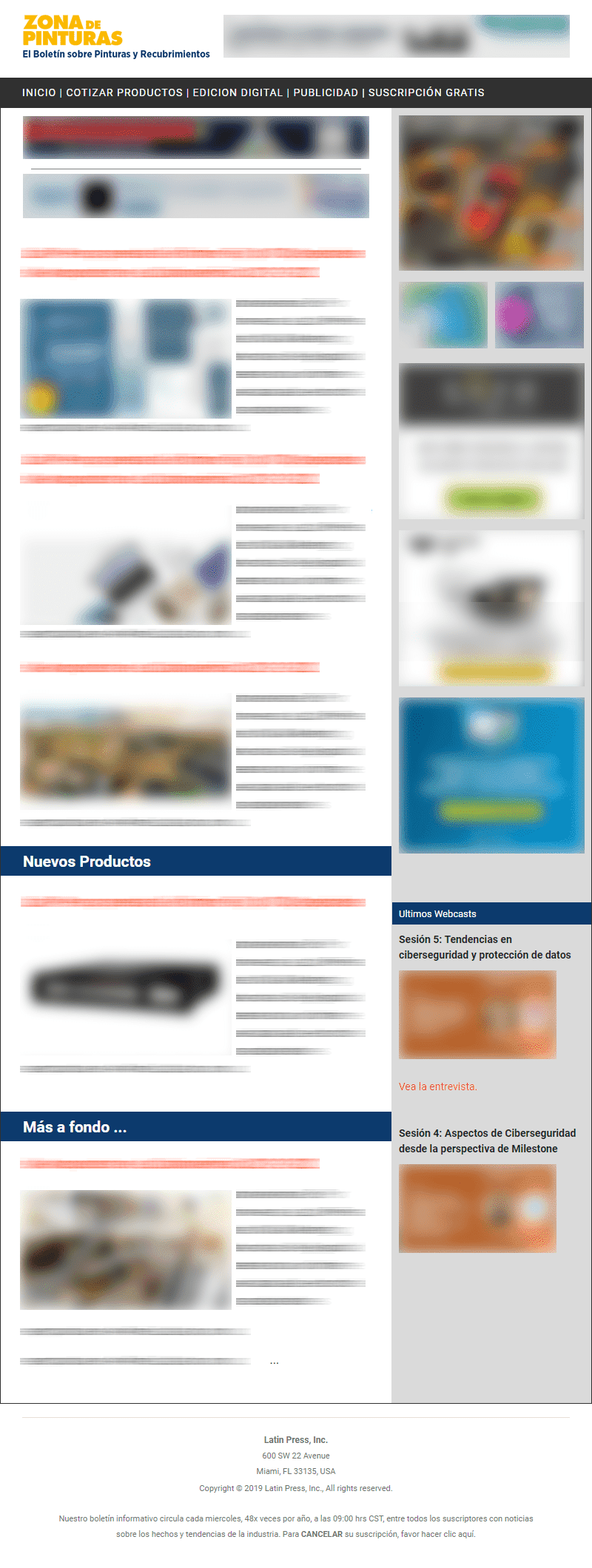Research by the Panamanian company Panafrut and some universities in that country propose to offer cashew peel oil as an anticorrosive of high properties, where the ships will be pontential customers.
by Natalia Ospina Vélez
In some parts of the world such as the Guianas or Brazil where the cashew is considered a native tree, talking about this fruit is synonymous with juices, wines and even compotes. In Panama, where cashew is born wild and is also used for edible purposes, recent research predicts new uses, this time in the coatings industry.The study, which is currently in the experimental and testing stage, is carried out by the Panamanian company Panafrut, dedicated to processing and exporting peeled cashew seeds. Likewise, it has the participation of scientists from the University of Panama, the Technological University and the INDICASAT (Research Institute of the University of Knowledge).
Working for about 20 years with the cashew, Hermann Gnaegi who is the president and general manager of Panafrut, bet on the extraction of oil from the cashew shell, a process that he wanted to take to his country after several visits to Brazil and Central America where some countries already carry out a similar process.
"In Brazil they are already doing it, and we saw it in a bit of a rustic way, in Guatemala. What we want is to do it in a scientific way and that is what we are doing with the help of the universities. Some professors present in the research have also involved universities in South America and the United States. Now they sent some samples to Europe for an evaluation," Gnaegi said.
Oil with high properties
Known by its acronym in English as CNSL, cashew nut shell liquid, cashew nut shell oil is an oily, phenolic, caustic and dark colored substance. In its natural state, CNSL is a mixture of different phenolic compounds including anacardial acid, cardol and cardanol.
The latter contains important properties such as fast drying after baking, high electrical insulation and good thermal stability . In addition, cardanol-based prepared resins possess outstanding resistance to softening by mineral oils, high acid resistance, antimicrobial properties, resistance to termites and insects.
Likewise, thanks to its natural composition and in synergy with other anticorrosive products, cashew oil becomes a product with a significant "barrier effect" and a high corrosion inhibitory capacity. At the same time, it has antioxidant properties on new and oxidized surfaces, good adhesion and finish, as well as adequate chemical and weather resistance.
"With the experiments we are now conducting in the Panama Canal area where there are strong corrosions, we have seen that phenols create an impermeable layer, therefore, one paints and the oxidation that is generated by the oxygen that enters the metals is protected with this layer, which allows nothing to penetrate," Gnaegi said.
For his part, Juan Antonio Jaén, researcher at the University of Panama and member of this study, referred to the technical characteristics of this oil as a product that offers properties superior to oleogynose or synthetic resins, especially in paints and varnishes.
"CNSL products, or their derivatives in some cases combined with flaxseed oil, have been reported as base resin in paints, varnishes and anticorrosives. Many times other anticorrosive pigments are added and excellent corrosion protection is obtained," he explained.
In this sense, Panamanian experts have used spectroscopic and electrochemical techniques, which allow them to identify that the benefits of CNSL-based formulations are largely due to their use combined with anticorrosive and other complementary pigments, which significantly improve the characteristics of the paint. the results have allowed them to determine that the polymer film that is formed is quite impermeable, a characteristic that raises the anticorrosive capacity of the oil.
"Thinking about that, we are working on several formulations with and without anticorrosive pigments, and as a linseed modifier for various types of applications," Jaén added.
{mospagebreak}
The boats will be customers
With his visits to the different countries of America, Gnaegi discovered the various uses of cashew oil. Among them, its function in the aeronautical industry as brake fluid for aircraft, however, for this purpose the oil must be refined.
For its part, anabacardial acid from cashew has applications in the winding industry for electric motors. When refined, it is used in brakes and conductor insulation, even NASA uses it in its own ships.
However, the use that in Guatemala is given to this oil to protect the hulls of ships from the adhesion of the sea shells, was where Gnaegi focused all his interest. take advantage of the entire maritime fleet that passes through the Panama Canal.
"We are going to use the oil for the hulls of the ships because in addition to the anticorrosive effect it has an anti-crustacean effect, a bit antibacterial that makes the sea shells not stick to the boats. Phenols have an insecticidal effect," Gnaegi said.
In turn, the businessman assured that all the ships that pass through the Canal and the shipyards will be their target audience as soon as the investigation is finished. "The boats are exposed to very aggressive areas such as the shores of the beach, therefore to do their periodic maintenance they must consume immense amounts of anticorrosive. Additionally, we are adding a dryer to this product to dry as quickly as possible," he said.
Natural origin and manual extraction
Because it is a natural product, cashew shell oil or CNSL, is projected as an anticorrosive that will serve as a starting point to produce other less polluting ones.
"Being an oil of natural-vegetable origin makes it an organic product and today worldwide anticorrosives that are not are being combated. The traditional ones are based on very toxic products, as a result of that organic anticorrosives are being sought and this is what we are going to get now, because the phenols are the ones that make the effect of the anticorrosive, "said Gnaegi.
Being such a small fruit, some might think that the extraction process becomes an odyssey, but a combination of manual work and those carried out by the extraction machine make the work easier. The latter, brought from Brazil, works as a pressure screw in which the shell is introduced, pressed and immediately expels the oil contained in it. This is how Gnaegi explained: "The cashew is opened manually and the nut is extracted. Subsequently, the peel that corresponds to 70% of the total fruit remains, the remaining 30% is the cashew nut. Of the 70% that is the peel, about 30% is the anacardial oil that is the one we use for the anticorrosive, to extract it we put the peel in the machine that presses and extracts the oil".
{mospagebreak}
Cashew: insecticide and fertilizer
Going from using a little less than half of this fruit to using it 100% is perhaps one of the greatest achievements of research. This was stated by Gnaegi, because what was previously considered a waste and almost a contaminant due to the burning of the oil, becomes today a great opportunity to create new products.
Initially, the natural composition of the oil makes it an insecticidal liquid for the surface where it is applied. Due to the chemical characteristics of cashew seeds, wood curing products can also be made.
Secondly, and after the process of extracting the oil from the shell, the production of organic fertilizer becomes another possibility of taking advantage of this fruit.
"After extracting the oil, the afrecho remains, that is, the dried and ground shell. Therefore, another product that can be made is organic fertilizer. We have established a decomposition process with Californian worms and are transforming what is left into an organic fertilizer. In this way what was previously thrown away, burned, lost and contaminated, we are using it completely: the oil for anticorrosive, the wood curer for its insecticidal effect and what we have left we work with the worm project to transform it into fertilizer, "concluded Gnaegi.
























Leave your comment